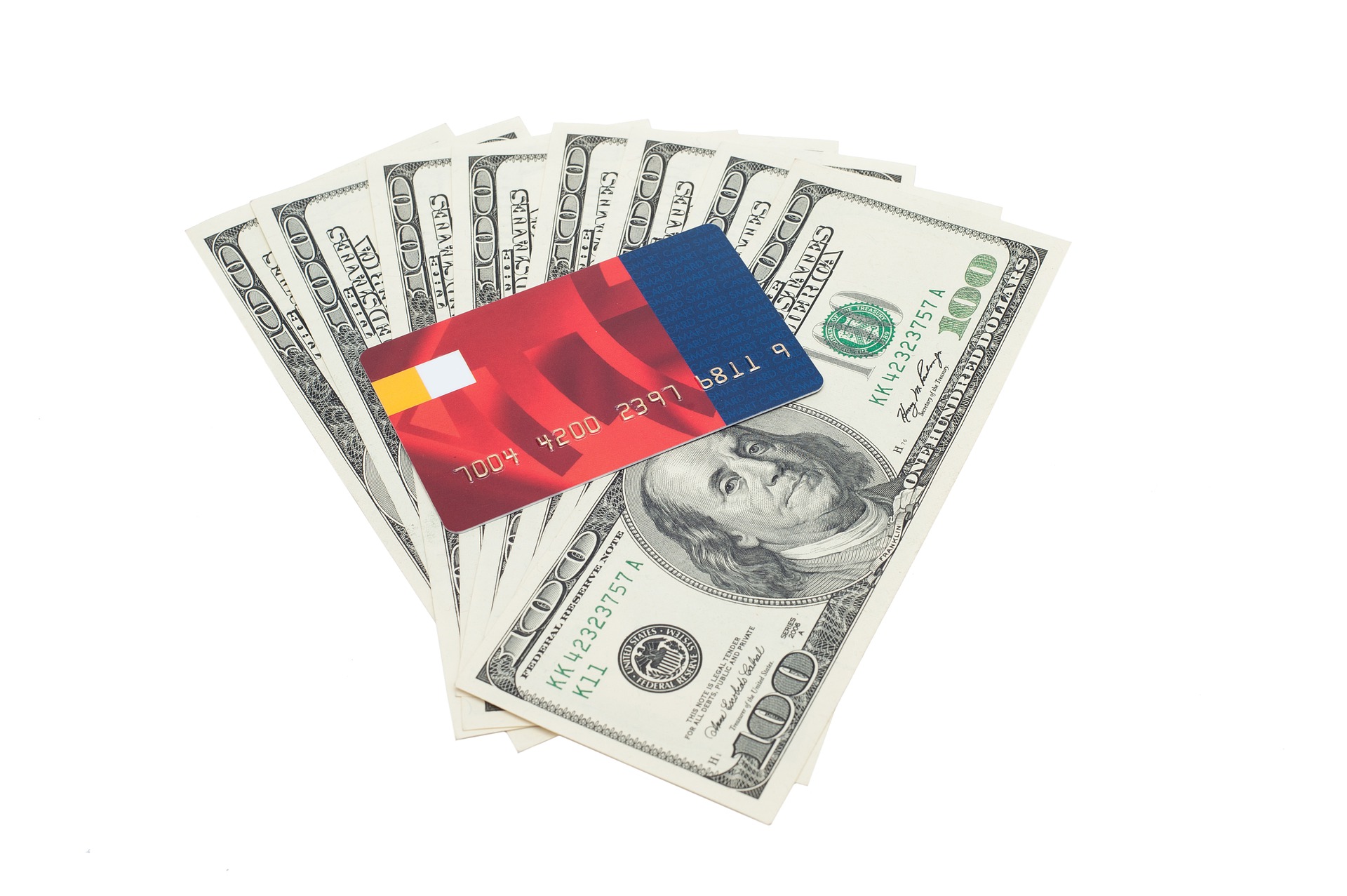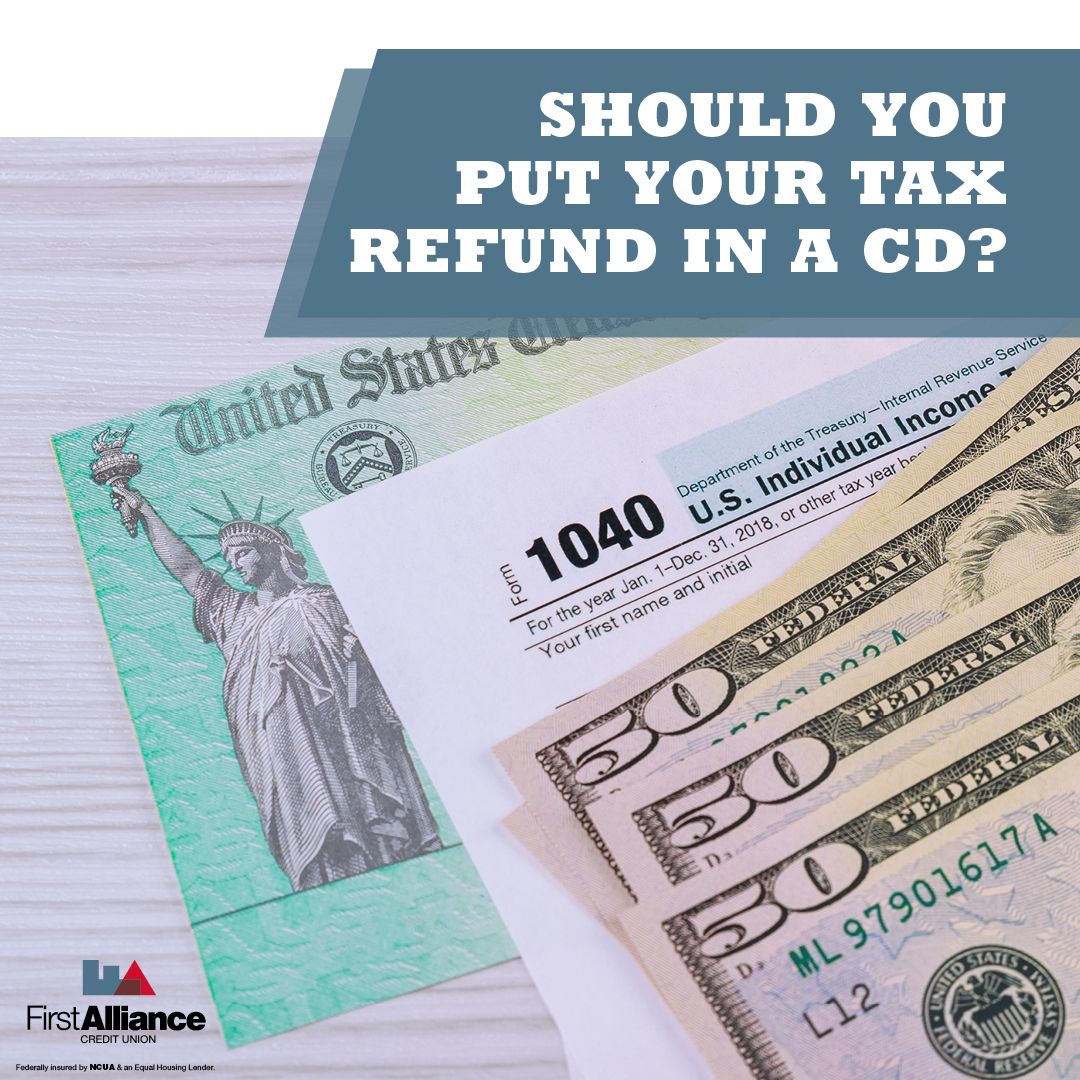Should I Get My Tax Refund On A Debit Card?
As the tax deadline approaches, a lot of people will be getting a refund back from the IRS. If you’re one of these people, then you know you can get...

When you get your tax refund, the more you know about how to use it wisely, the better. (We've actually written a couple of blog posts on the subject that you can find here and here.)
However, you should also know about ways to use your tax refund you'll want to avoid. Some of these options are obviously bad ideas, while others might seem appealing until you take a closer look. We've listed some of these below.
If you don't have a checking and savings account, getting your tax refund put on a prepaid debit card might seem like a good idea. You can access your money the same way you would if you had a bank account, and as an added bonus you don't have to worry about those pesky overdraft fees. A prepaid debit card might also seem like a good idea if you're planning on using your tax refund to buy a big-ticket item, or don't want your tax refund to get mixed in with your other accounts.
 The biggest problem with getting your tax refund on a prepaid debit card can be summed up in one word: fees. Prepaid cards are notorious for charging fees to use the card or withdraw money at an ATM, and some companies even charge monthly maintenance fees. All of these will eat away at your tax refund.
The biggest problem with getting your tax refund on a prepaid debit card can be summed up in one word: fees. Prepaid cards are notorious for charging fees to use the card or withdraw money at an ATM, and some companies even charge monthly maintenance fees. All of these will eat away at your tax refund.
If you want to keep your tax refund separate from your other funds, all you have to do is set up a separate savings account. You can make the process even easier by getting your tax return through direct deposit. Just instruct the IRS to deposit your tax return in your new savings account, then allocate the funds any way you'd like when you log in online.
On the other hand, if you don't have a checking and savings account, now is the time to get one. Getting an account set up at First Alliance Credit Union, for instance, only requires $5, and you'll walk out with a debit card that won't charge you a fee on every transaction.
At first glance, a refund anticipation loan seems like a good idea. You know how much of a return you'll be getting anyway. Why not get your money a few weeks sooner and use the refund check to pay it back?
The main problem with refund anticipation loans is that most of them require you to file your taxes with a tax preparation agency, all of which will charge a fee that starts around $48. They may also charge you a fee to apply for the loan, as well as a fee to get the funds disbursed. In other words, you're paying money just to get your own money faster.
Many tax preparation agencies have gotten rid of the fees associated with refund anticipation loans, so if you were already planning to use one of these companies, you might look at these loans more favorably. However, it's still a risk you don't have to take, and if the IRS happens to disallow any deductions or withholds money for any reason, you will still owe the full amount of the loan. Your best bet is to wait for your refund to be direct deposited into your account.
When you know you have a tax refund coming in, it's understandable if you start thinking about all the things you could buy with it. Before you go out and spend your money, however, take some time and plan out what you want to do with it. Take a look at your retirement fund and your savings, as well as any necessary purchases you need to make, such as car repairs, home repairs or even paying off medical bills.
 If you feel sad about having to put the money aside without getting anything nice for yourself, take a few moments and review your savings and retirement accounts. Look at how much they've grown, and especially how much interest they continue to earn. If you haven't been saving for very long, visit a compound interest calculator and see how much money you'll have in 5, 10 or 15 years.
If you feel sad about having to put the money aside without getting anything nice for yourself, take a few moments and review your savings and retirement accounts. Look at how much they've grown, and especially how much interest they continue to earn. If you haven't been saving for very long, visit a compound interest calculator and see how much money you'll have in 5, 10 or 15 years.
This should be the most obvious thing not to do with your tax return, but enough people head towards the nearest casino with their tax refund that it bears mentioning. The thrill of gambling is almost irresistible, and if you weren't expecting to get the money anyway, why not use it to win even more money?
While savings accounts and Certificates of Deposit (CDs) won't provide you with same rush, you will be able to use your money to make more money. As an added bonus, you don't have to risk the money you started with.
If you really want to experience the thrill of gambling and winning big, you could also put your money into a WINcentive savings account. Each month you'll get the chance to win, plus more chances to win quarterly and annual prizes. Even if you don't win, your money will still be earning interest in the savings account.
There are a lot of ways to use your tax return that won't improve your financial situation, and a few of them will leave you worse off than you were before.
Fortunately, First Alliance Credit Union has a lot of ways in which you can use your tax return to put you ahead of the game. Put your tax refund into a savings account, club accounts, health savings accounts, or even a Certificate of Deposit (CD).
This is your year. Make your tax return work for you.

As the tax deadline approaches, a lot of people will be getting a refund back from the IRS. If you’re one of these people, then you know you can get...

One of the most exciting parts of getting a tax refund is figuring out what to do with it. You might be aware that if you use your tax refund wisely,...

Everyone loves tax refunds. After all, who doesn’t enjoy money in the mail? All too often, though, people forget that a refund isn’t a prize, reward...